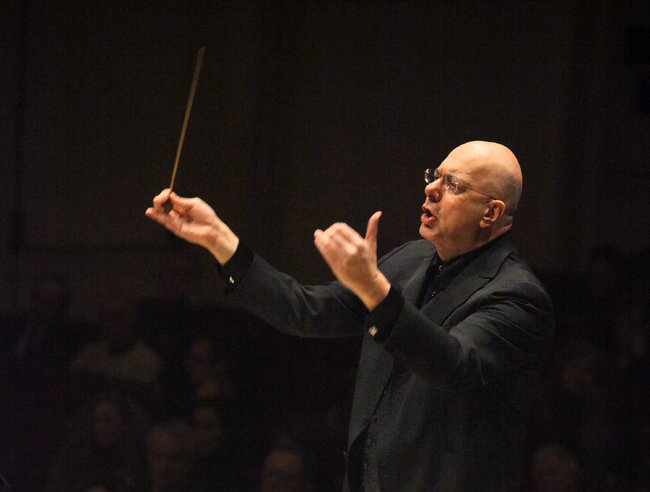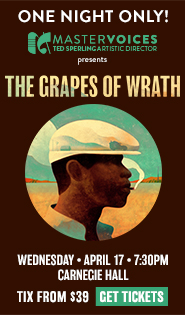Botstein, ASO survey rare Strauss with variable results
Since taking up the baton of the American Symphony Orchestra more than two decades ago, Leon Botstein has made it something of a personal mission to feature obscure works by celebrated composers (this season’s scheduled Schubert Symphony No. 9 notwithstanding).
And we’re not talking little nothings for strings tossed off by a twelve-year-old Mendelssohn: These are, in large part, mature works by mature composers that have been (fairly or not) left out of the concert canon, and they almost always turn out to be interesting, valuable pieces worth a second or third hearing. Under Botstein, the ASO’s programming has been anything but workaday.
If only the same could be said for his conducting. Whatever inspiration Botstein finds hidden in the works he unearths, he almost invariably has trouble communicating it in performance. The orchestra’s season-opening concert at Carnegie Hall on Wednesday, an all-Richard Strauss program dubbed “Marriage Actually,” was practically mainstream by Botstein’s standards, but its selections still fell short.
Take, for instance, the orchestral suite from Intermezzo, which opened the program. The two-act romance is from near the midpoint of Strauss’s operatic career, and exhibits many hallmarks of the composer’s captivating style. It is often lush in orchestration, and invariably complex, requiring a precise hand to fold its layers properly. Under Botstein, the music was jumbled—often not together, and with little attention paid to balance, so that every section of the orchestra was playing at the same level at any given moment. “Träumerei am Kamin” opened with the sort of disunion that would have called for a restart in rehearsal.
And it’s not as though this orchestra lacks capable players. Each section showed confidence here and there, and the best playing of the night came in “Am Spieltisch,” which includes what amounts to a string quartet with accompaniment. Here, with minimal direction, the principals were able to make intimate music by listening to each other.
The Parergon on Symphonia Domestica felt weak in its own right. This piece was written for Paul Wittgenstein, the Austrian pianist who lost his right arm in the First World War and was the dedicatee of a number of works thereafter, most notably Ravel’s Piano Concerto for the Left Hand.
Strauss’s Parergon is a curiosity, but not a work on the same level—where Ravel’s brilliant concerto lives up to its billing as a composition with one hand in mind, what we have here seems to have been composed for two hands and then reduced to one. Whether on the left or right side of the keyboard, the complementary voice always seems to be missing. The performance was not exactly revelatory, either—Mark Bebbington poked at the keyboard, refraining from exploring any lyricism in the part, while Botstein’s accompaniment was unimaginative.
Ensemble was more solid in the Symphonia Domestica (the inspiration for the Parergon) than in the Intermezzo suite, but Botstein’s rendition was matter-of-fact. In spots there were glimpses of real musical decision-making, but never a sense of destination or of arrival. While individual parts were beautifully played, they did not seem to fit together, as though we were listening to a first play-through after a round of sectional rehearsals. The romantic “Wiegenlied” featured intimate, sincere principal solos, but the music’s heated, heavy passion was restrained.
A college president, conductor, professor, musicologist, Botstein is a genuine polymath by today’s standards. There’s something admirable in the fervor with which he tackles a wide range of interests and commitments, and his programming is often as refreshing as it is peculiar. But one can’t help wishing that his musical discoveries had a more formidable champion.
The American Symphony Orchestra’s next concert will be 4 p.m. October 26 at Symphony Space. The orchestra will present Schubert’s Symphony No. 9 in C Major, with discussion and Q&A. americansymphony.org
Eric C. Simpson is the Assistant Editor of The New Criterion





Posted Oct 17, 2014 at 9:28 am by A Joseph Stoddart
I rather agree although I thought the music was more lacking than the conducting necessarily was. The pre-concert talk was quite good! I VERY much agree with the remarks about the piano piece being missing a line.